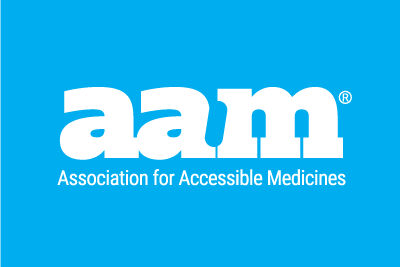The Issue
The patent system exists to protect the intellectual property of innovators. AAM and our members support innovation. Yet far too often, some brand-name drug companies attempt to patent features of drugs that do not represent true innovation. Some attempts by brand-name drug companies to delay competition from generic and biosimilar drugs for decades by finding ways to repackage existing inventions in later, secondary patents. These “patent thickets” chill competition by discouraging competitors from entering a market because of the exorbitant cost of litigating meritless patents.
The Solutions
Congress and the President can take steps to address abuses of the patent system that threaten the generic and biosimilars competition.
Preserve and Protect the Ability to Settle Patent Cases
Congress should take steps to preserve the ability to procompetitively settle pharmaceutical patent cases. Proposed legislation would make those settlements presumptively anticompetitive and would disincentivize patent challenges that are prohibitively risky. Patients benefit from procompetitive patent settlements because they accelerate access to lower-cost medicines.
Prevent Patent Thickets
Brand-name pharmaceutical companies are increasingly amassing a large number of patents in both the small molecule and biologic space. These large patent estates make it economically difficult for generic and biosimilar companies to meaningfully challenge these patents. Even when the patents may be largely invalid or avoidable, the sheer number of patents and the need to knock down every single one in court makes the litigation too burdensome and too expensive for a generic or biosimilar company even to get started. AAM recently filed comments at the Patent and Trademark Office highlighting these issues.
Preserve and Protect the IPR System
Inter partes review (IPR) is an important tool that Congress enacted as a bipartisan solution to allow the PTO to eliminate bad patents efficiently. Patent examiners face heavy caseloads, spending an average of just 19 hours on each patent. There are many advantages to allowing the PTO to police its own patent-granting decisions: PTO reexamination of granted patents is cheaper, faster and benefits from the greater technical expertise PTO holds to review patents than generalist judges. When IPR eliminates an invalid patent, it cancels a government-granted monopoly and allows free market competition to lower prices. See AAM Letter to Congress.
Protect Skinny Labeling
As AAM recently articulated in its brief in Amarin v. Hikma, skinny labels are a critical tool—provided for in the original Hatch-Waxman amendments—to expedite patient access to lower-cost medicines. Generic labels usually duplicate the brand’s label, but where one use is patented, generics can simply drop the patented indication from their labeling. The resulting “skinny label” does not infringe the patented method. Recent Federal Circuit decisions have called skinny labeling into question. AAM proposes that Congress enact a legislative safe harbor to ensure that this important practice continues.
AAM Efforts
AAM has worked to eliminate barriers to generic and biosimilar drug competition caused by abuses of the patent system by some brand-name drug and biologics manufacturers, while simultaneously ensuring that no harm to innovation occurs. To achieve these goals, AAM:
- Supports inter partes review (IPR) within the U.S. Patent and Trademark Office (PTO).
- Protect skinny labeling (see Amarin amicus brief);
- Supports efforts to ensure the patent system is used only to protect true innovation.
Learn More
- AAM One-Pager
- Press Release on Patent Briefing



